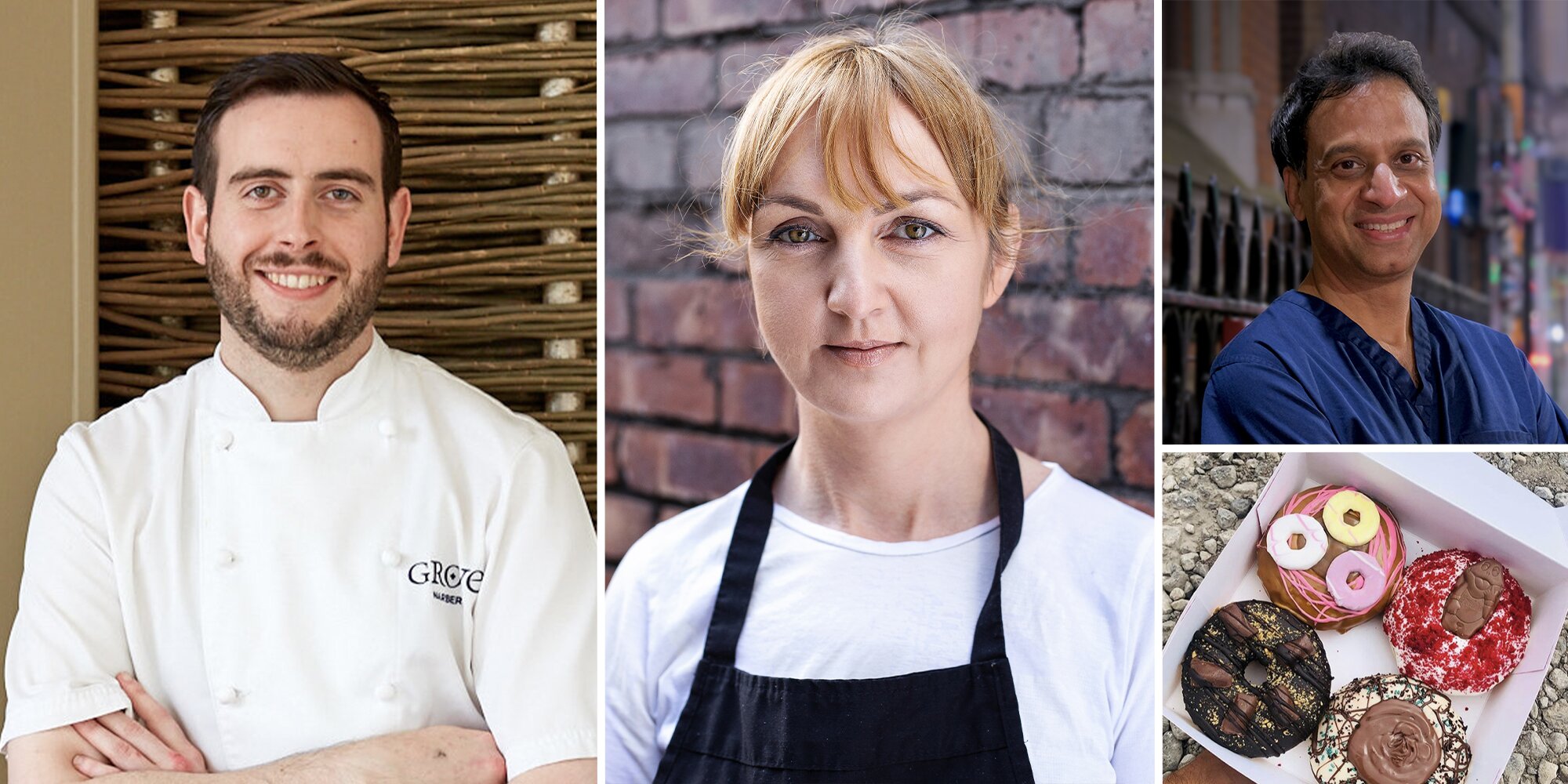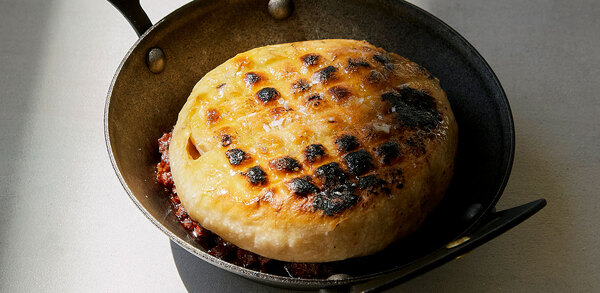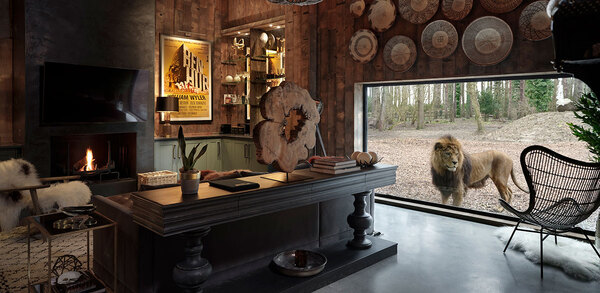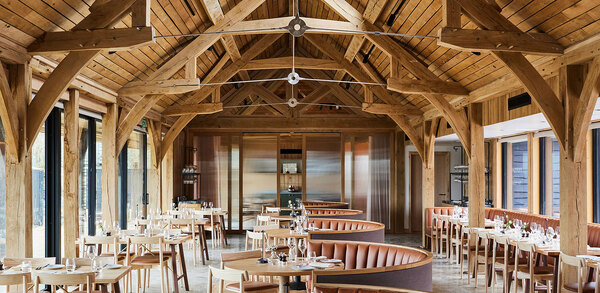Light in the darkness: the operators finding optimism and opportunity during lockdown
From charitable endeavours to changing business models or simply having the time to slow down and plan for the future, there have been some positive stories over the past year, despite the doom and gloom. Caroline Baldwin reports.
Allister Barsby, Hide & Fox: “Lockdown reminded us of the power of local communities”
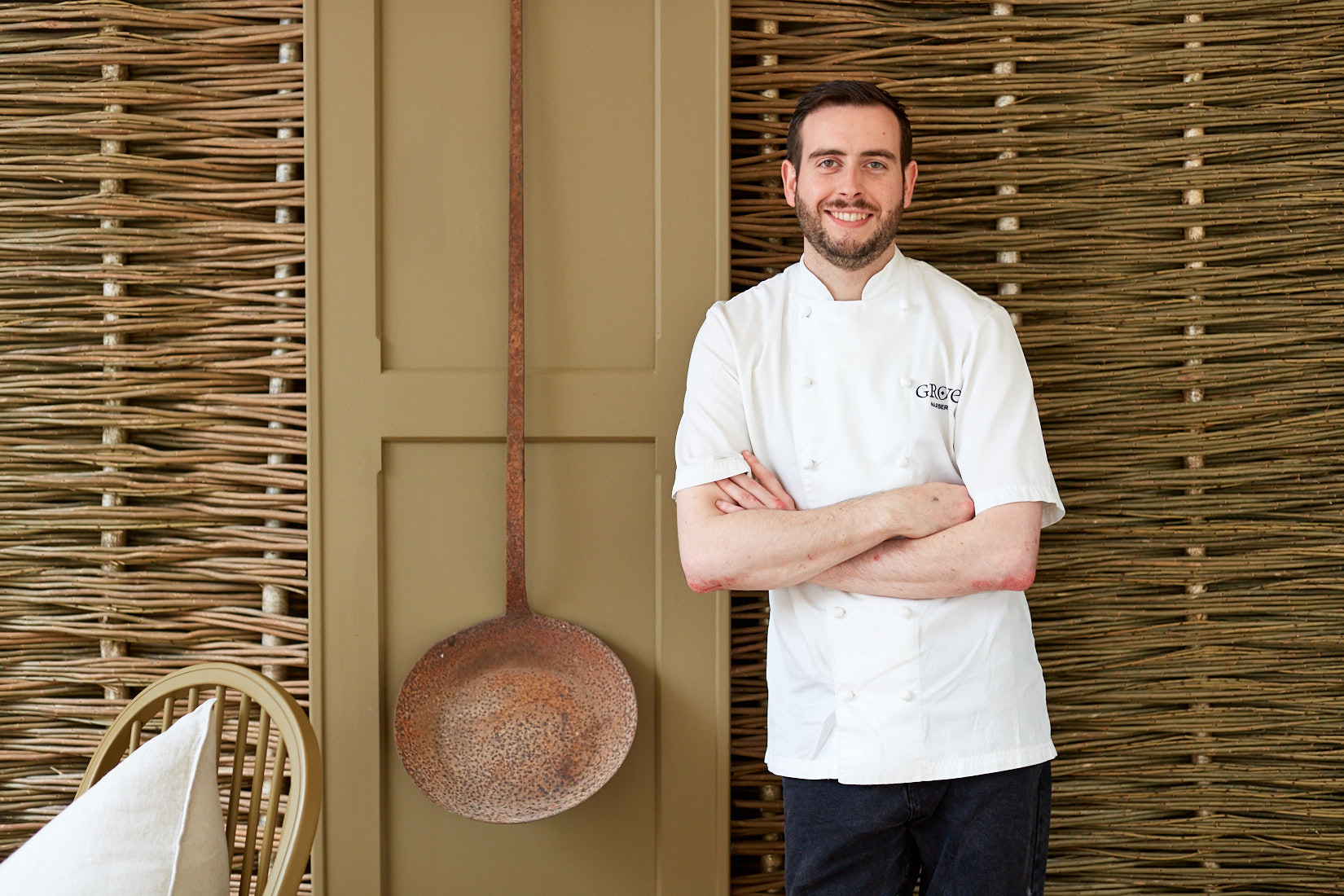
When Allister Barsby opened Hide & Fox in Hide in Kent with his front-of-house partner Alice Bussi in June 2019, it took a few months for the locals to warm to the new owners.
During the nine months pre-lockdown, Barsby says the pair worked to get the community on side after the previous run of unsuccessful cafés and restaurants that had occupied the building.
Soon after, thanks to his years working in Michelin-starred kitchens, Barsby’s fine dining caught the attention of the local community and tables became popular, but then Boris Johnson announced the lockdown.
“We had done really well in our first nine months, so we thought, ‘It’s not the end of the world, we have a little bit of cash in the bank, if it lasts a month or two we’ll be fine’,” he says. But as it became clear that the pandemic would last more than a couple of months, Barsby – like many other hospitality businesses – began delivering food to his local community, especially vulnerable people.
They started with food produce boxes, as well as simple meals to cook at home, such as fishcakes and cottage pies, before moving to pre-portioned, restaurant-quality meals.
Locals were soon sharing their meals on social media and Barsby found they were supporting the business. The large village community is within commuting distance of London, so those now home-workers were more likely to order a takeaway from Hide & Fox and even book a table once it reopened over the summer.
“People are ordering our meals when they haven’t been to the restaurant yet. There are quite a few first-timers, and they’re telling us they’re going to come to the restaurant when we reopen,” says Barsby, who received a star for Hide & Fox in the 2021 Michelin Guide for Great Britain and Ireland. “Lockdown has helped us reach a different demographic of locals that wouldn’t normally come to the restaurant.”
Lockdown has helped us reach a different demographic of locals that wouldn’t normally come to the restaurant
Kate Nicholls, UKHospitality: “The pandemic shone the spotlight on our resilient industry”
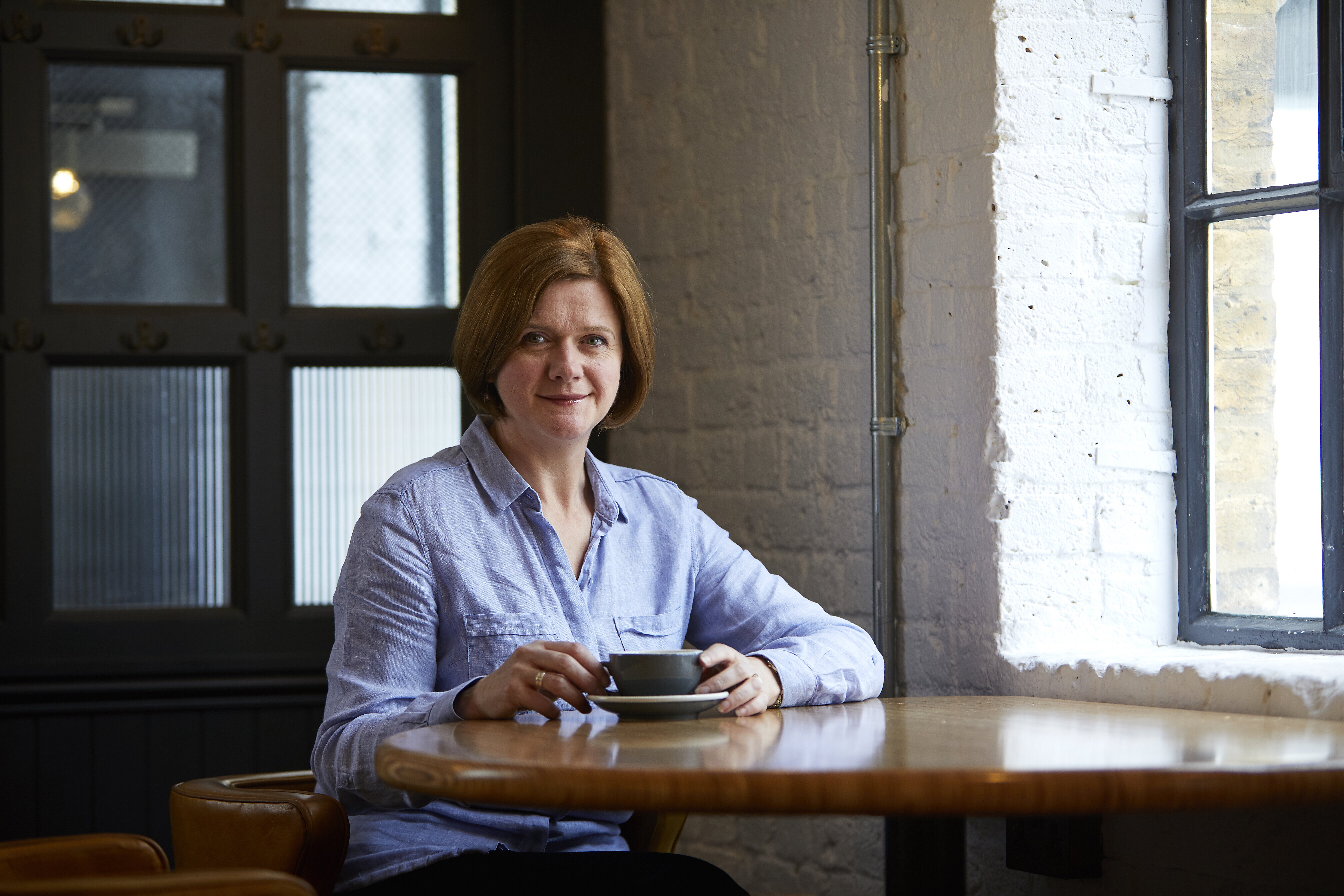
For Kate Nicholls, chief executive of UKHospitality, bursts of positivity in the hospitality industry may be few and far between, but you can find them if you look closely enough.
“Hospitality has certainly made plenty of headlines over the past year, but, sadly, the news has almost exclusively been negative, and the column inches that we have been afforded are a proportionate reflection of the scale of the crisis facing us.”
Nicholls says that while the industry has rarely been out of the news in a negative light, there have been highs among the lows. She points to restaurants being recognised for their hard work in providing meals for key workers and pivoting their businesses in order to survive the crisis.
From a policy perspective, she says the pandemic encouraged local government to scrap a lot of the red tape which has sometimes got in the way of creative ideas in the past.
“When venues reopened in the summer, we saw some local authorities eager to embrace alfresco dining, allowing venues to trade while ensuring that customers and staff were kept as safe as possible,” explains Nicholls. “In some areas, notably in London, councils embraced relaxed pavement licensing and offered fast-track permits to encourage the use of outdoor space. In a year where, overwhelmingly, the news was negative, this was a nice example of lateral thinking to help the sector. That is what hospitality will need to survive the crisis, but also in the long term.”
It’s that kind of thinking that hospitality will need to survive the crisis, but also in the long term
There is also the long-awaited debate over a minister for hospitality, which finally took place in Parliament last month after the industry united in their thousands to sign a petition.
“The conversation around a minister for the sector has rumbled on for years. Even before the pandemic, there was a recognition from plenty of people outside the sector that we are, at least in economic terms, more than big enough to warrant one,” says Nicholls.
“So while the conversation is not a new one, the pandemic does seem to have given it some extra impetus. One of the most encouraging things about the debate was to hear cross-party support for what we do and a recognition from MPs of all persuasions that hospitality is a hugely important asset for the UK, both economically and socially.”
Mary-Ellen McTague, Eat Well MCR: “We’ve fed over 25,000 people in need”
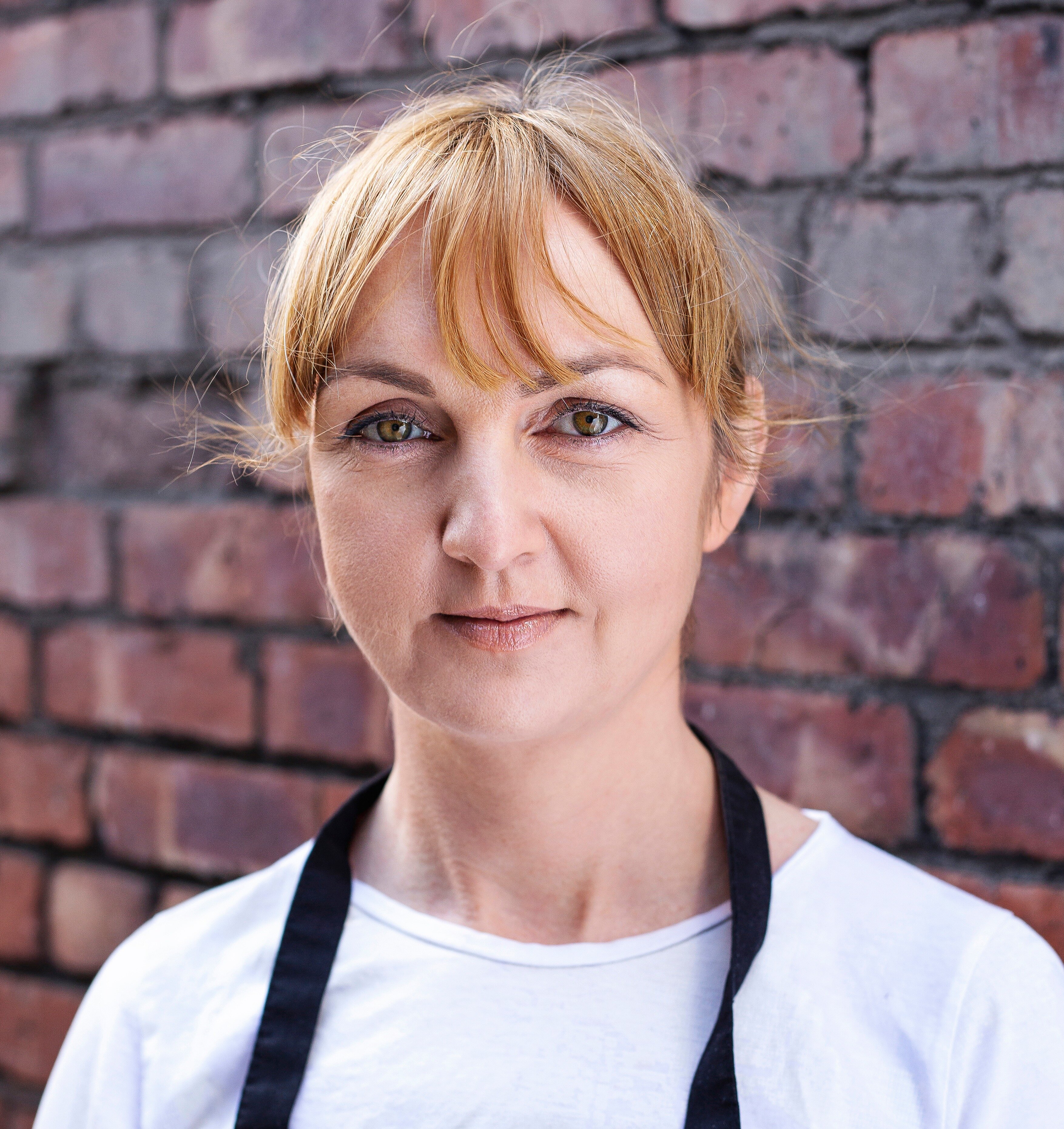
Mary-Ellen McTague was, like many chefs at the beginning of lockdown, saddened by the amount of food waste as a result of the forced closure of restaurants. She realised she wasn’t alone and put a shout-out on social media asking others to donate any food likely to go to waste and she would use her contacts to distribute it to people in need.
Once the food started rolling in, McTague got to work cooking for a local hospital in Manchester and a homeless charity, and shortly afterwards she had formed a new organisation of 120 volunteers making 500-600 meals a week. Since the start of lockdown Eat Well MCR has fed over 25,000 people.
“We wanted to work with organisations that exist already, which are already addressing an identified need, where we can supplement what they do by adding in nutritious meals made by chefs with nice ingredients,” she says.
“We were conscious that there were other organisations in the city that had been working with homeless people and families and women in refuges for years. We didn’t want to get in the way or to try to become experts in those things – we just wanted to help where we could.”
Eat Well MCR is now focused on working with homeless families and families in temporary accommodation, as well as women in refuge, and continues to grow.
“We take on more chefs and restaurants every month, and we find more people to feed,” says McTague. “All of these problems existed beforehand. They’ve become very acute because of the pandemic, but they’re going to be here long after. We realised really quickly that it was not a new problem, we were all just suddenly aware of it and had time to do something about it because our businesses were closed.”
We realised really quickly that it was not a new problem, we were all just suddenly aware of it and had time to do something about it because our businesses were closed
She says her project is never going to run out of people to feed: “It’s terrible, but it’s true. There’s never going to be a shortage of people who are in need, certainly not in the immediate future. We want to tackle food inequality and holiday hunger – but it’s not just holiday hunger, it’s weekend hunger, it’s evening hunger and it’s morning hunger.”
Laura Christie, Oklava: “Lockdown encouraged us to scrap service charge”
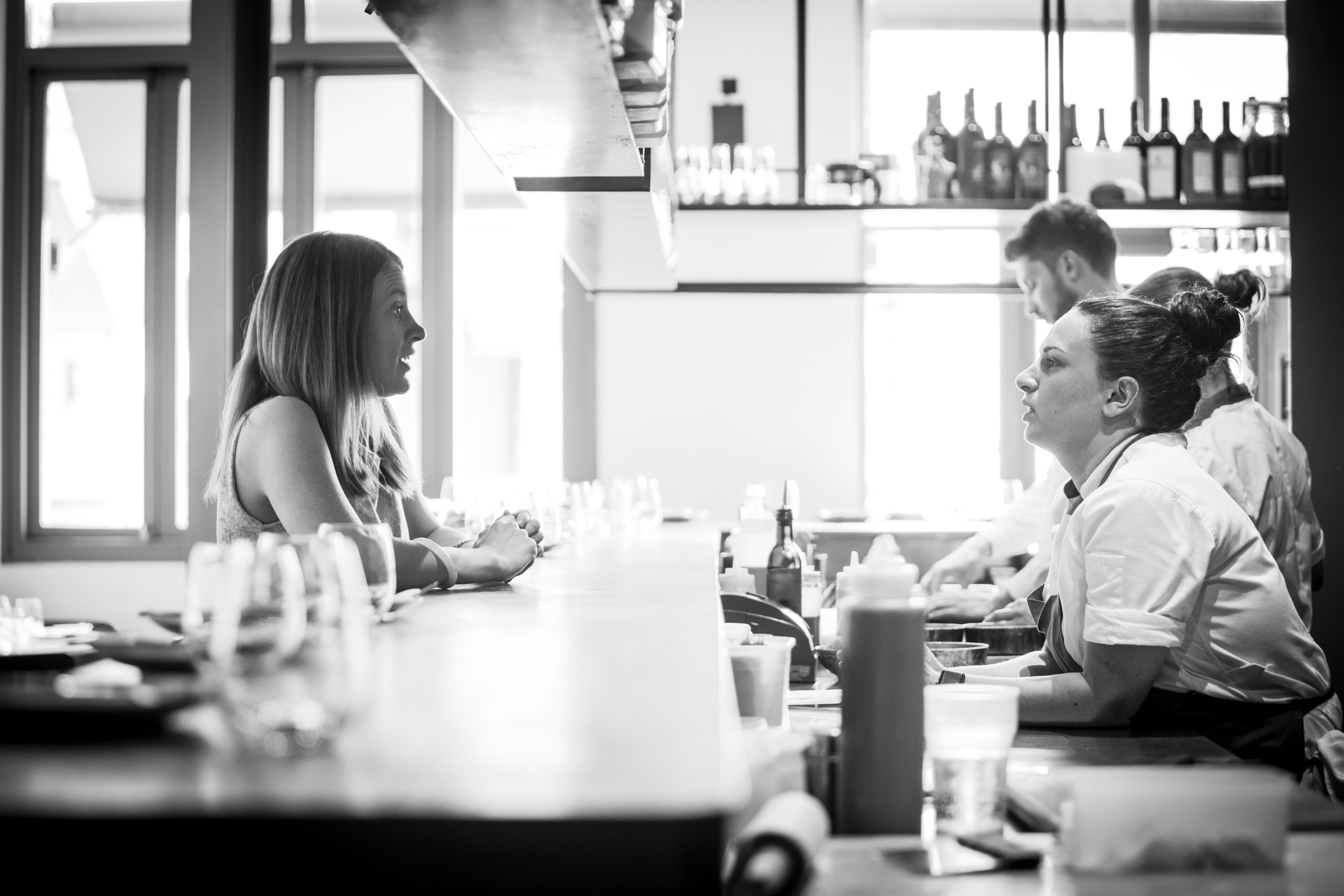
Back in July Oklava in London’s Shoreditch made the decision to scrap the customary optional 12.5% service charge on its bills – choosing instead to incorporate it into menu prices.
In an Instagram post making the announcement over the summer, co-owner of Oklava, Selin Kiazim, said: “The optional service charge has always gone to our staff, in full. However, this service charge, while optional for our guests, has never been optional for us. Without it, we would not be able to pay our skilled staff the wage they deserve and would simply not have survived as a restaurant.”
While the restaurant had wanted to remove the service charge for many years, it hadn’t found the confidence to take the leap until the emergence of the government’s furlough scheme as the UK descended into lockdown last year. Oklava’s staff pay has always been contractual – ie, the business tops up wages if not enough service was accrued – so employees received 80% of their pay as per the spirit of furlough.
But the other half of Oklava’s ownership, Laura Christie, tells The Caterer this was not necessarily the case across the industry. Some furloughed staff faced up to a 50% reduction in their take-home wage, because the service charge portion of staff wages is not always taken into account for furlough pay.
“We feel that service charge and the fluctuating wages this results in are a big part of what makes our industry seem like it is not a serious career, that it lacks stability and relies on the goodwill of customers – which very few other industries do. The fragility of being paid that way has been really exposed by the pandemic,” explains Christie.
Optional service change has the benefit of being free from VAT, but now that the cost is absorbed into the menu, Oklava will have to pay. While this increases outgoings during a difficult economic period, the venue believes it will benefit from standing out as a good employer in a competitive market, as staff will have the “certainty and dignity” of a consistent wage.
“This helps us retain staff, which is a saving, and I have to say customers have responded to it very well, too,” she says.
Christie hopes this bold move will help the wider industry. “We’re passionate advocates for working in hospitality and we want future chef, waiters, managers, to be too. And this is particularly pertinent with Brexit significantly depleting our pool of staff.”
David Connell, South Lodge: “Forced closure gave us time to plan, learn and improve”

When lockdown first hit back in March 2020 and hospitality was forced to close, David Connell, general manager of South Lodge hotel in Horsham, West Sussex, says he could have easily fallen into the mindset of being the victim.
“You can either be a victim or be an innovator,” he says and, luckily for the business, he was decidedly the latter, instantly putting plans in place to conduct small improvements to the hotel while being conscientious that it had been affected by a loss of sales over the financial year.
Forced closures provided the hotel with the opportunity to wrap the exterior of the building in scaffolding to repaint and repair windows, as well as conduct a lot of noisy and disruptive work internally, which would have been impossible if there were guests present. South Lodge also spent time planning its outdoor spaces for the upcoming summer months, as well as working on engaging clients remotely throughout the closures – including virtual gym classes and charity bike rides, which allowed corporate clients to network while on exercise bikes at home.
One particular change Connell is “delighted” about is the removal of the breakfast buffet. It had been on his mind for a while to change the traditional buffet offering to an à la carte option, but the fear of upsetting guests prevented the hotel from making the change. Necessary health and safety measures put in place due to Covid-19 saw the continental ham and cheese spread switched for a restaurant-quality start to the day with zero backlash from guests.
“It’s actually a far calmer, more enjoyable experience for guests now that we’ve reinvented breakfast and put some healthier dishes on the menu, including avocado on toast and Bircher muesli – and the service just makes it better.”
Having to book a table for breakfast rather than allowing guests to turn up when they like also allows the hotel to stagger service and be more efficient. “I refuse to go back to the buffet again; if one good thing comes out of the whole experience, it’s that we’ve been able to look at breakfast afresh.”
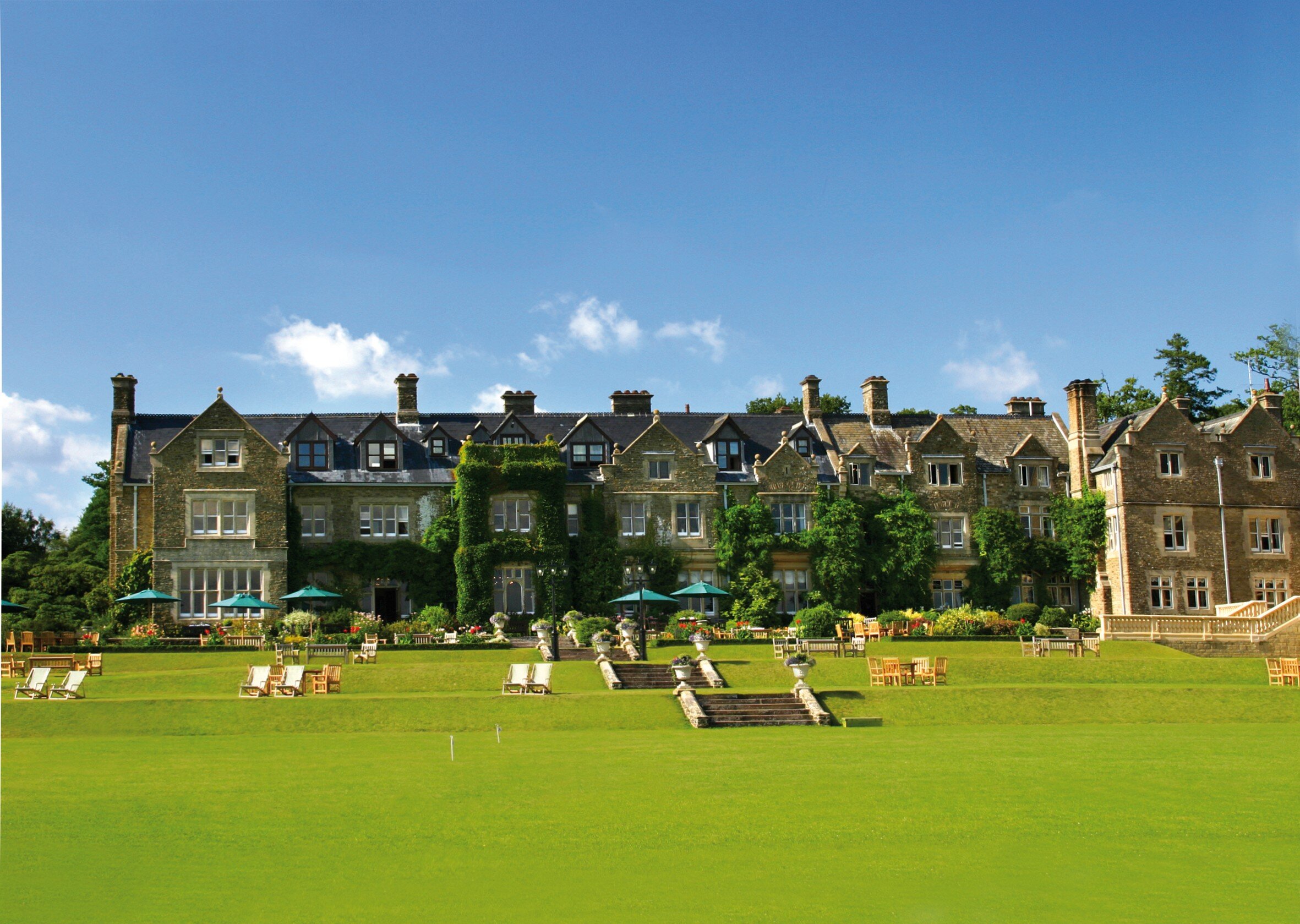
But it’s clear Connell’s positivity has meant that far more good has come out of the pandemic than a revamped breakfast offering. Alongside that and the hotel improvements has come a can-do attitude amid an extremely difficult time for the hotel.
“It’s been an opportunity to challenge ourselves and identify opportunities,” he says. “When would you ever have the opportunity to learn so much in such a short space of time? You can mope around and be a victim or actually look back in a few years’ time and, from a crisis management point of view, think what an incredible education it was.”
When would you ever have the opportunity to learn so much in such a short space of time?
Sam Harrison, Sam’s Riverside: “Our pop-up shop will continue post-Covid”
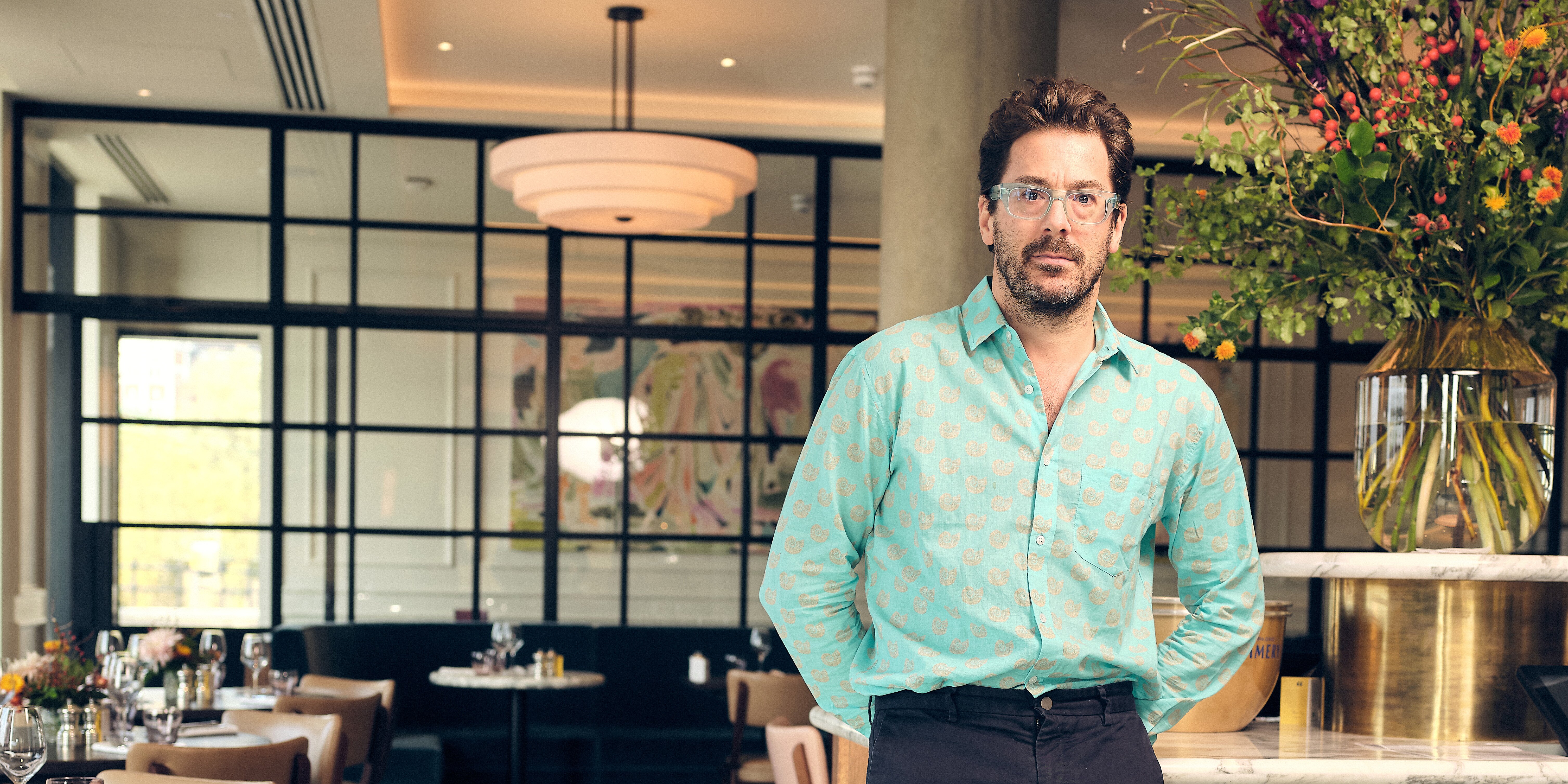
During the first lockdown back in March last year, like the rest of the industry, Sam Harrison was forced to close his restaurant in Hammersmith. Sam’s Riverside had only been open for four-and-a-half months, and with cash reserves at a low, Harrison had to get creative to protect the future of his business.
The riverside restaurant is in an up-and-coming part of London, along the River Thames, with plenty of new-build apartments and what Harrison calls a “very captive market”.
“But it’s actually really limited in terms of food retail,” he explains. “Hammersmith itself lacks interesting food shops and if you want a good deli you have to go to Chiswick, Notting Hill or Fulham.”
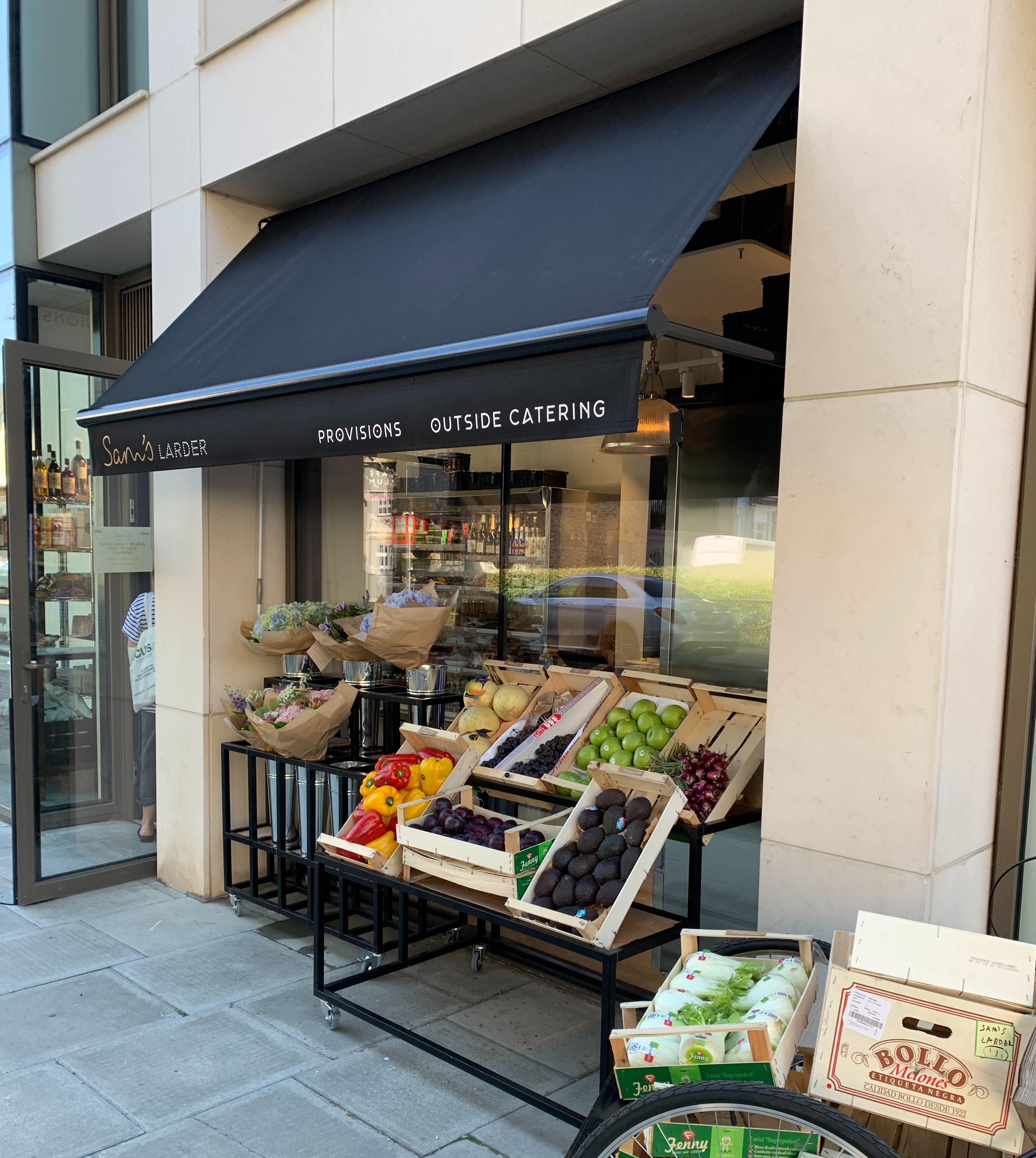
The idea for Sam’s Larder had been bubbling away in the back of Harrison’s mind for some time, but it took the pandemic to put his plans into action. A few months in, Harrison had converted the restaurant’s office space into a 23 sq m retail store selling high-quality pantry staples, fresh food and restaurant-quality ready meals cooked and frozen on site.
That “captive market” living above the restaurant and along the waterfront began using the deli as their corner shop, but as months of hospitality closures rolled on, customers were visiting from further afield to take a taste of the restaurant home with them.
“More and more people have used the shop because of lockdown and because they want to support me and the business,” he says. “People are buying local. Our deli is filled with wonderful produce from our chefs, but also every product is a small, artisan supplier that we want to support.”
“It’s taken off and exceeded our expectations. There’s no doubt it will be a permanent fixture and we plan to grow the space.”
A chain of Sam’s Larders may also be on the cards, as Harrison says a few landlords have already been in touch about expanding the brand. “People are now finding the Larder and they haven’t even eaten at the restaurant yet. If we had a Sam’s Larder in another location, hopefully people would try the food and want to dine at the restaurant.”
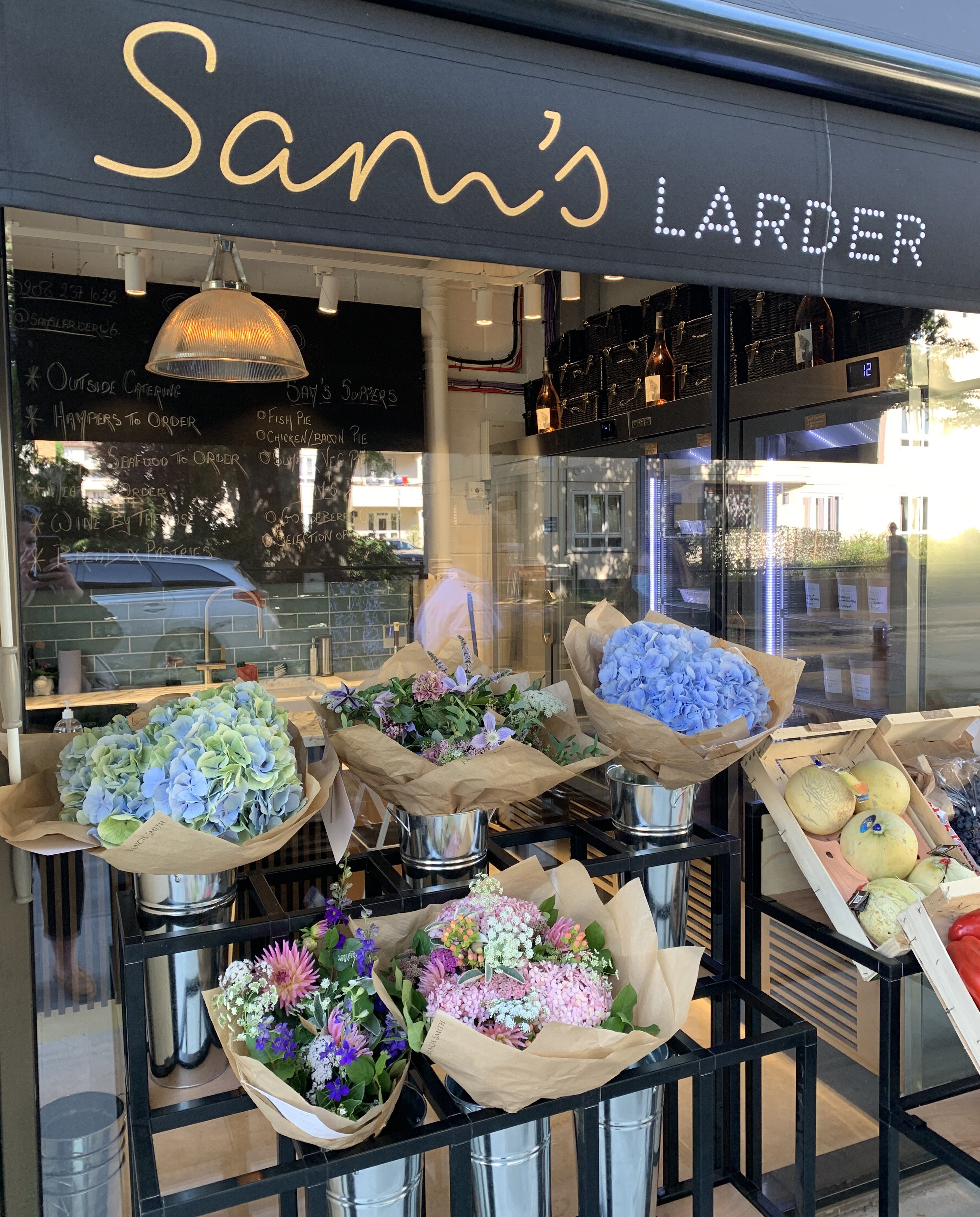
While the profits from Sam’s Larder hardly begin to cover the cost of the continual closure of the restaurant, Harrison says it does help to keep the lights on and engage with customers.
“It’s putting a small amount of cash in the bank, it’s helping keep suppliers buoyant and we have two or three chefs cooking the ready meals – they don’t want to be at home on furlough. We need to keep active; I have this real concern about how we get teams back to life when we reopen, because there’s going to be a pent-up demand and you’ve got to be match fit.”
It’s putting a small amount of cash in the bank, it’s helping keeping suppliers buoyant and we have two or three chefs coming in a week
Pops of positivity
We’ve all heard about the fantastic efforts of restaurants up and down the country in donating meals to our wonderful NHS workers, but one doctor decided it was his turn to repay the favour. Consultant orthopaedic foot and ankle surgeon Dr Jitendra (Jeet) Mangwani wanted to do his bit to help his community and local businesses in Leicester. Restaurants Kayal and Herb have been providing free and discounted meals to NHS and other key workers during lockdown, and Dr Jeet helped pay back their kindness by offering to help deliver meals in his free time.
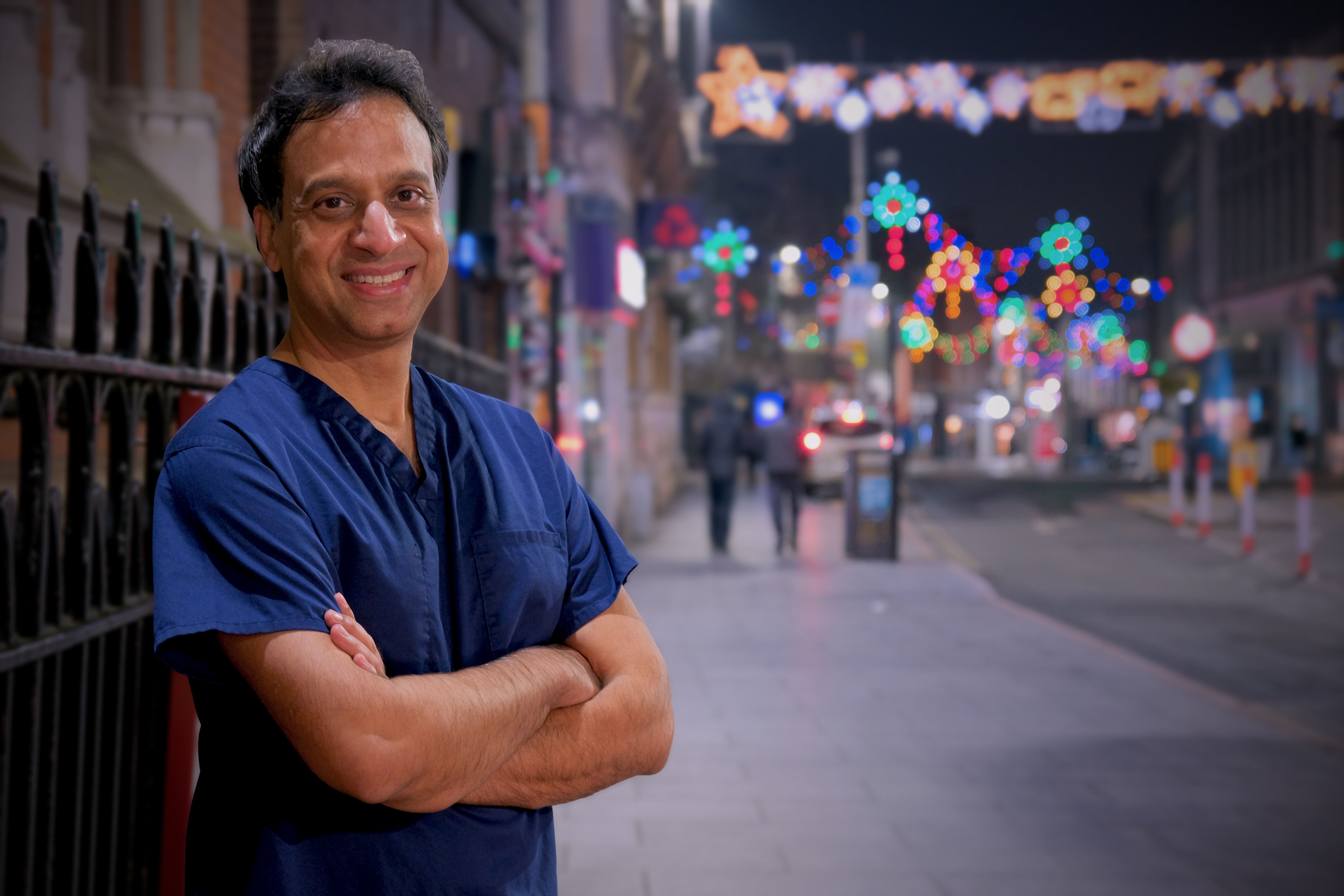
Grateful customers visiting two cafés in Oxfordshire – the Cartshed and the Oxshed – can purchase gift cards that are “paid forward” to NHS staff. The gift cards, which range from £5 to £15, are put on a notice board for NHS staff to redeem against lunch, hot drinks or cakes.
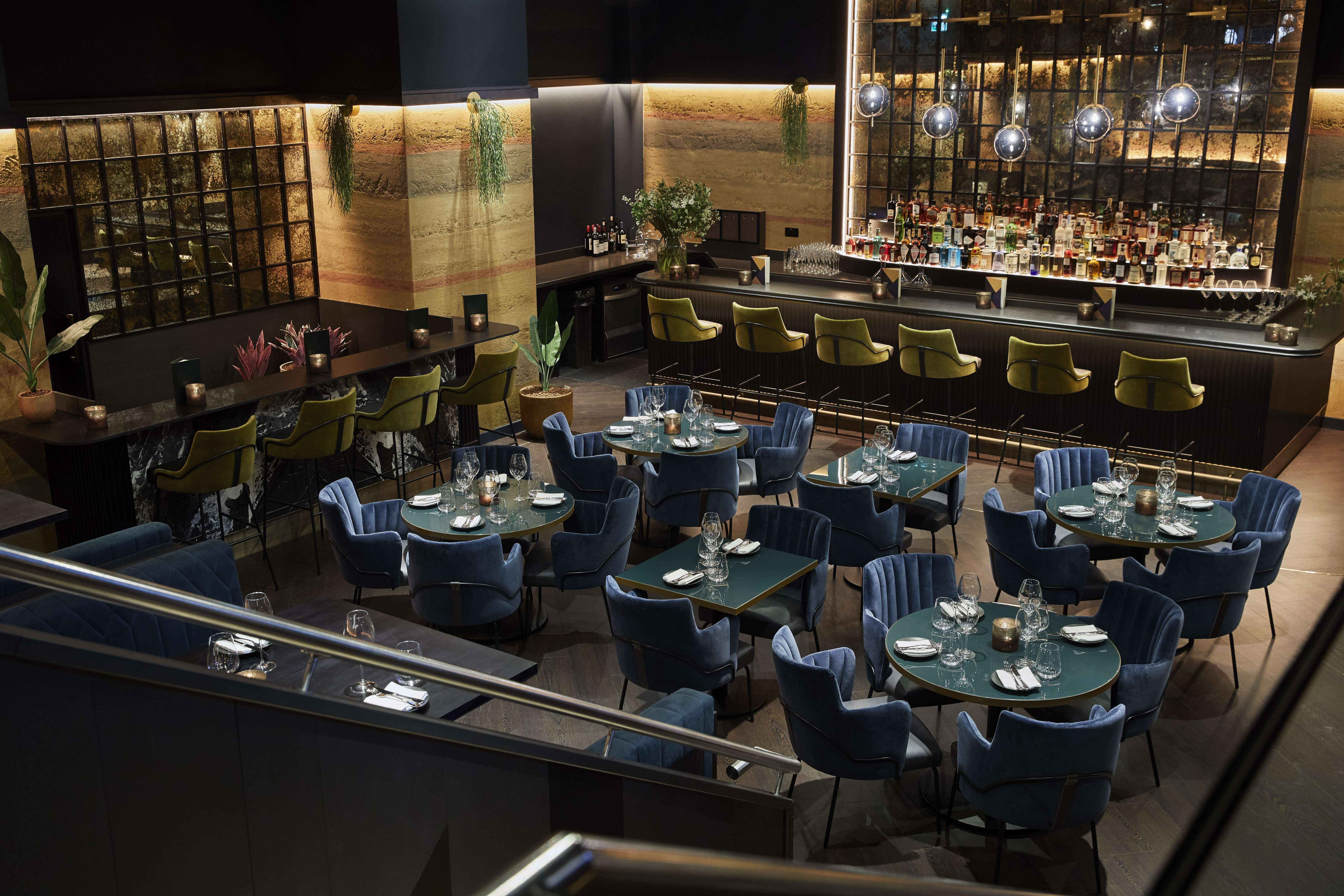
Throughout lockdown, Gaucho and M Restaurants have been preparing and sending 200 meals a day to Only a Pavement Away, which supports homeless people who have worked in hospitality and are now on the street.
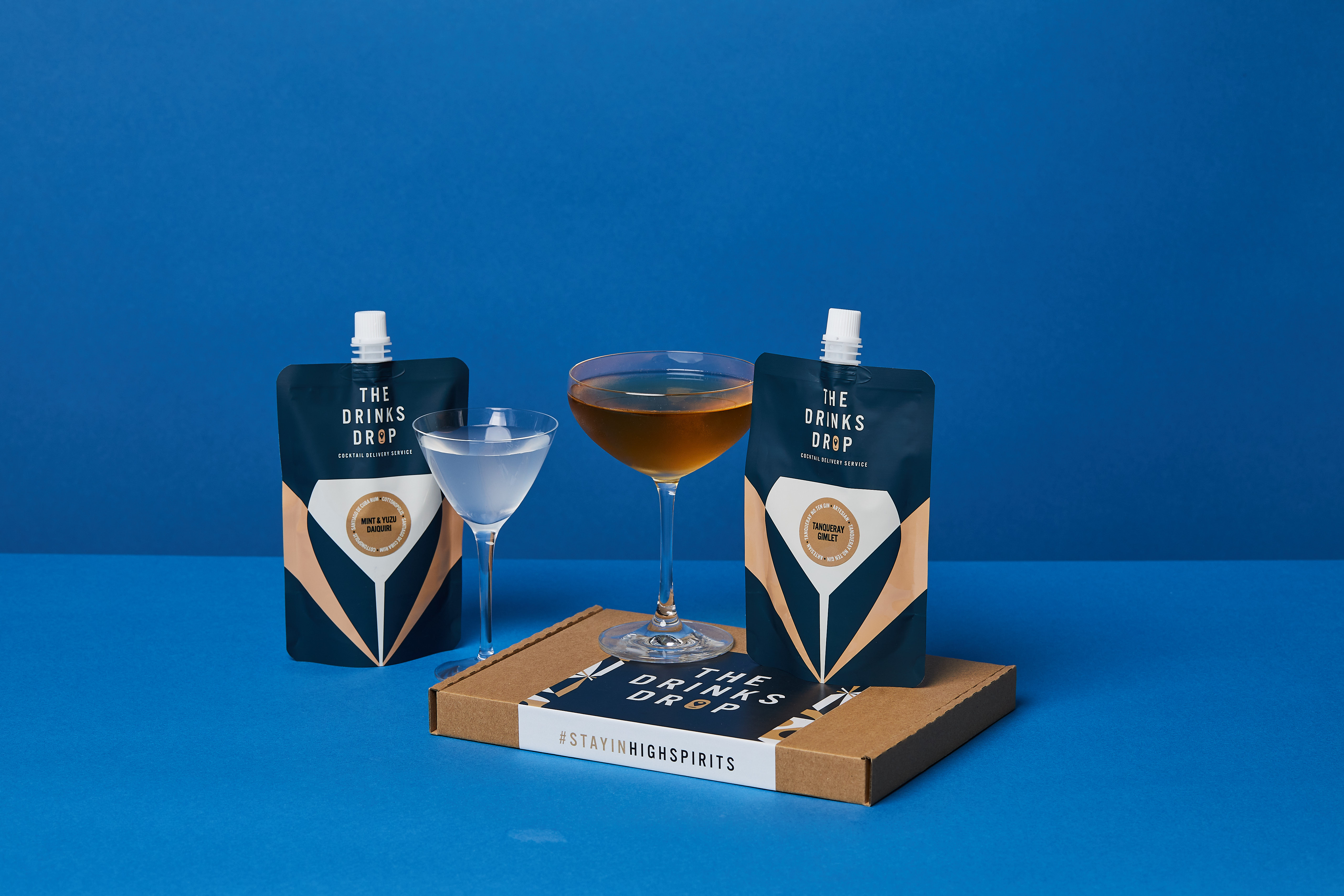
The Drinks Drop launched in April 2020, offering ready-to-drink cocktails by bike or by post. Cocktails are exclusive to the brand and are created by some of the UK’s most prestigious establishments, including London’s Artesian and Black Rock, and Manchester’s Cottonopolis and Escape to Freight Island. A percentage of profits is redistributed to the bars taking part, and the Drinks Drop also offers bartenders the opportunity to become “Delivery Tenders”, delivering to London and Manchester.

Prior to lockdown, Derbyshire bakery Project D sold its handmade doughnuts in a couple of shopping centre kiosks and universities. Five days after furloughing all staff, the business rehired everyone in order to deliver eggs and flour to doorsteps and in pop-up locations.
Selling essential goods allowed the bakery to continue selling its doughnuts and, over the course of the pandemic, it expanded its operation into a bakery 11 times the size of its original site, while making deliveries from Leeds to Birmingham.
Project D is now recruiting 100 new staff and has taken on a distribution hub in the north of England, with ambitions to deliver nationwide.
Eco-friendly stone-baked pizza restaurant Birtelli’s pivoted during lockdown, with the Royal Leamington Spa business supplementing its popular takeaway menu with pizza kits to local residents, before expanding to supply remote workers and virtual events.
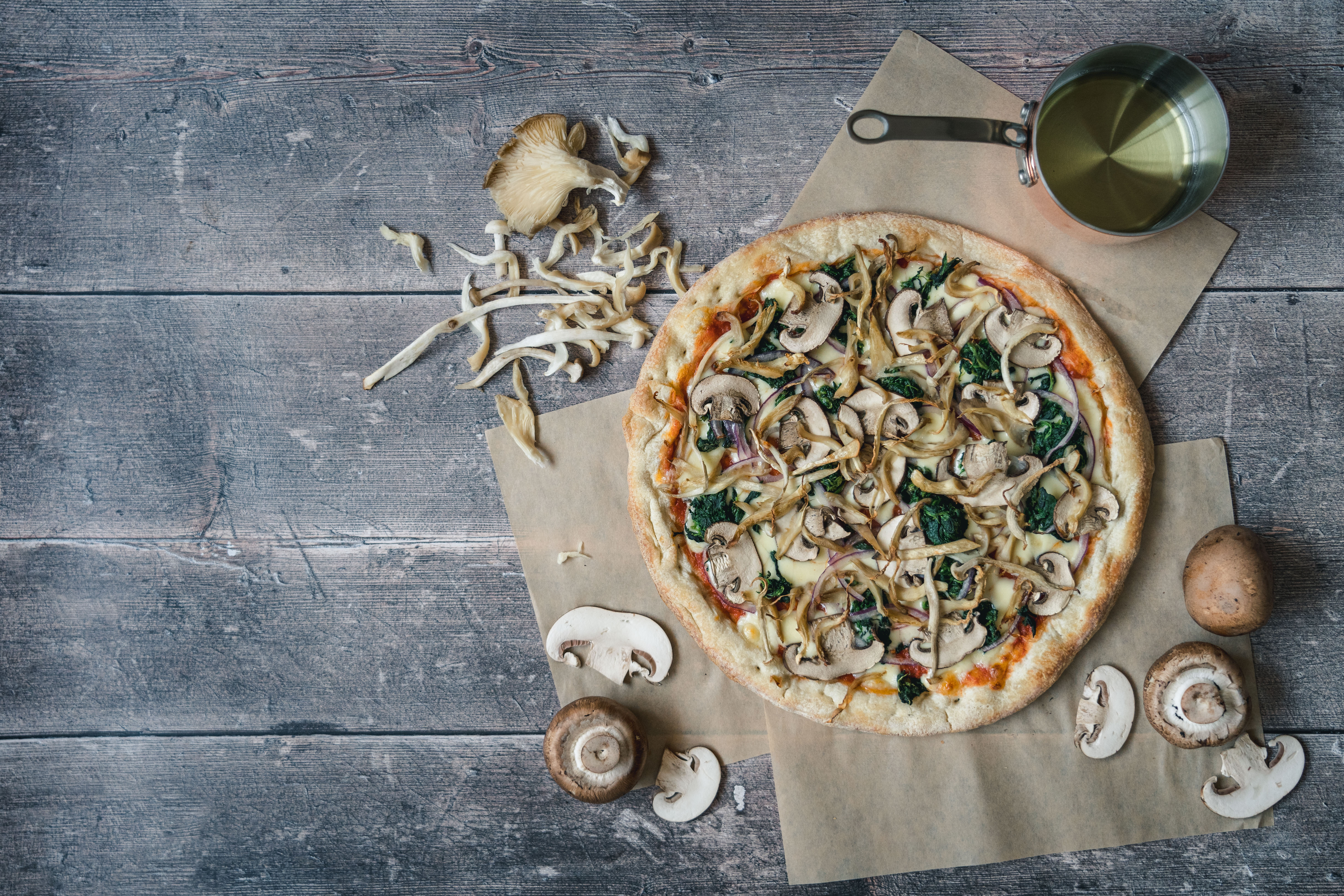
Kits contain everything needed to make pizza at home, with a choice of either a pre-made half-baked pizza base or a fresh dough ball for hand stretching, as well as craft beer add-ons. As its success grew beyond Warwickshire and the Cotswolds, the pizzeria is now offering pizza kits to the whole of the UK by post.



